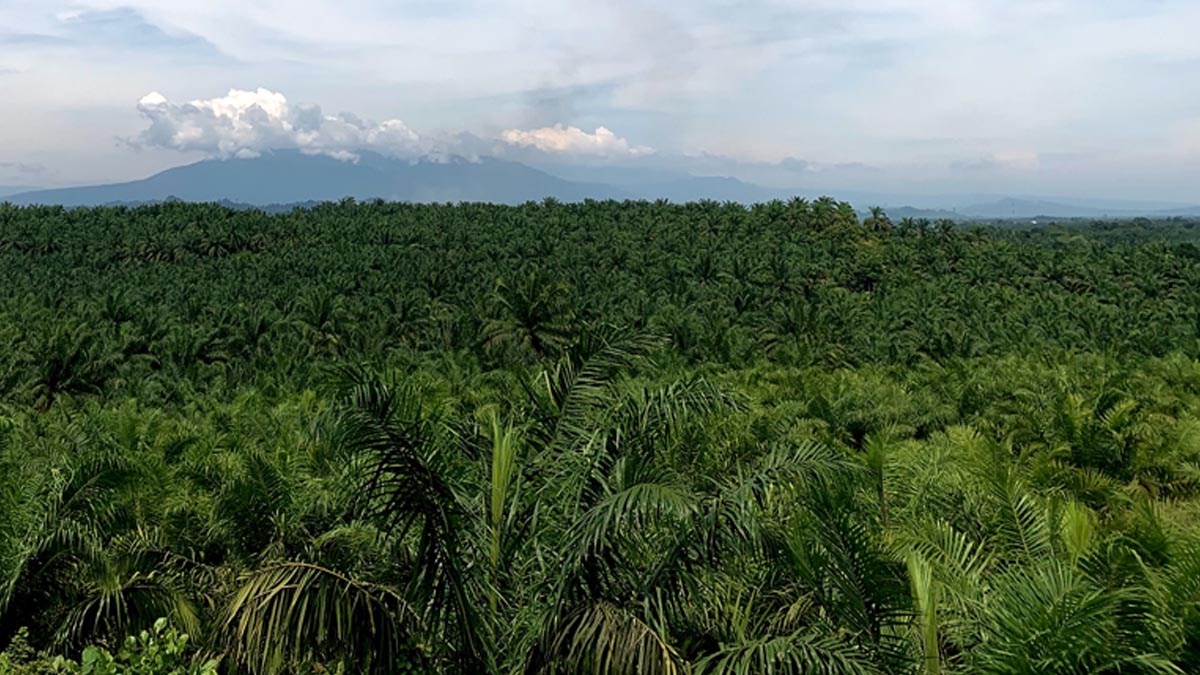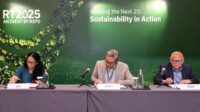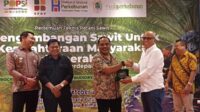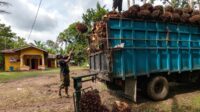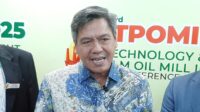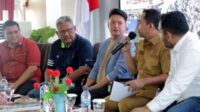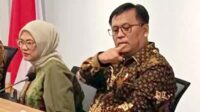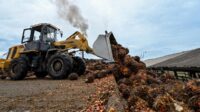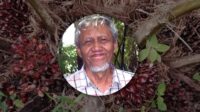PALMOILMAGAZINE, JAKARTA — The Center for Natural Resources Law Studies and Advocacy (PUSTAKA ALAM) has revealed concerning findings regarding the operations of the Forest Area Control Task Force (Satgas PKH). In its latest study, the organization found that hundreds of thousands of hectares of oil palm plantations owned by smallholders were allegedly included in the government’s list of reclaimed forest areas.
According to the report, from the 3.4 million hectares of forest areas that Satgas PKH claimed to have reclaimed as of October 1, 2025, approximately 1.5 million hectares were handed over to PT Agrinas Palma Nusantara. However, PUSTAKA ALAM’s analysis suggests that around 614,235 hectares of that land actually belong to smallholder farmers—mistakenly categorized as reclaimed areas.
PUSTAKA ALAM Director Muhamad Zainal Arifin called the findings a strong indication of potential legal violations in the task force’s execution.
“Satgas PKH reported to President Prabowo that all reclaimed land belonged to corporations. Our analysis shows otherwise—more than six hundred thousand hectares are smallholder oil palm plantations,” Zainal stated in an official release received by beige-heron-208544.hostingersite.com on Friday (October 31, 2025).
The study was based on multiple official sources, including the Data and Information Decree on Established Business Activities in Forest Areas (SK DATIN) No. I–XXIII, handover records from Satgas PKH to Agrinas Palma, and internal reports from several palm oil companies.
Location Permits Used as Justification
PUSTAKA ALAM noted that Satgas PKH’s primary method of reclaiming land was by using companies’ location permits as legal justification. However, many of these areas had long been cultivated by smallholders—often years before the companies even obtained their permits.
“Satgas PKH misunderstood the nature of a location permit. They treated it as proof of ownership, when in fact it is merely a planning instrument,” Zainal explained.
He emphasized that, under ATR/BPN Regulation No. 13 of 2021, location or spatial use permit holders are still required to clear the land of existing private rights before development.
“By equating location permits with actual control on the ground, the task force has wrongly swept up many community-owned plantations in its operations,” he added.
Community-Owned Land Wrongly Targeted
PUSTAKA ALAM’s field study identified several cases of alleged misclassification across multiple provinces.
- In Central Kalimantan, 571.47 hectares reclaimed within the PT UP concession were found to be fully owned by local farmers.
- In Riau, 7,520.35 hectares reclaimed from PT GH included 7,402.35 hectares of smallholder land.
- Similarly, within PT TP’s area, 5,716.3 hectares were reclaimed—of which 4,003.31 hectares belonged to farmers.
- At PT TMP, 2,372.87 hectares were reclaimed, 2,295.87 of which were smallholder plantations.
Despite confirmation from several companies acknowledging that portions of the reclaimed land were indeed owned by independent farmers, Satgas PKH continued to include them as reclaimed objects.
“Signboards installed in the field bear company names, but community lands are still listed in the official Reclamation Reports,” Zainal said.
Rising Risk of Social Conflict
PUSTAKA ALAM warned that the policy could ignite horizontal conflicts in regions such as Central, East, and South Kalimantan, as well as Riau. Farmers who have managed their plantations for years are now facing harvesting activities by Agrinas Palma and government-appointed operational partners.
“We observed instances of ‘quick harvest’ or hit-and-run operations by these partners, escorted by security forces. Such involvement creates a power imbalance—farmers defending their land are now labeled as illegal occupiers,” Zainal reported.
The organization further argued that this policy contradicts President Prabowo Subianto’s commitment to protect smallholders.
“Instead of safeguarding farmers, Satgas PKH’s actions criminalize them. This contradicts the President’s promise and risks alienating him from the very people he vowed to defend,” Zainal emphasized.
Enormous Potential Penalties
Beyond social implications, the policy could have severe economic consequences. Under Government Regulation No. 45 of 2025, unauthorized activities within forest areas may incur fines of up to Rp375 million per hectare. If applied to the 614,235 hectares of smallholder land for a 20-year period, total potential penalties could reach Rp230.34 trillion.
Concluding its study, PUSTAKA ALAM urged the President to reassess the data submitted by Satgas PKH and to verify all related records. Smallholder lands mistakenly listed as reclaimed areas, the group argued, must be immediately removed from the list.
“The President must review this policy to prevent it from backfiring. Reclamation should target rogue corporations—not strip smallholders of the rights that sustain Indonesia’s palm oil economy,” Zainal concluded. (P2)

